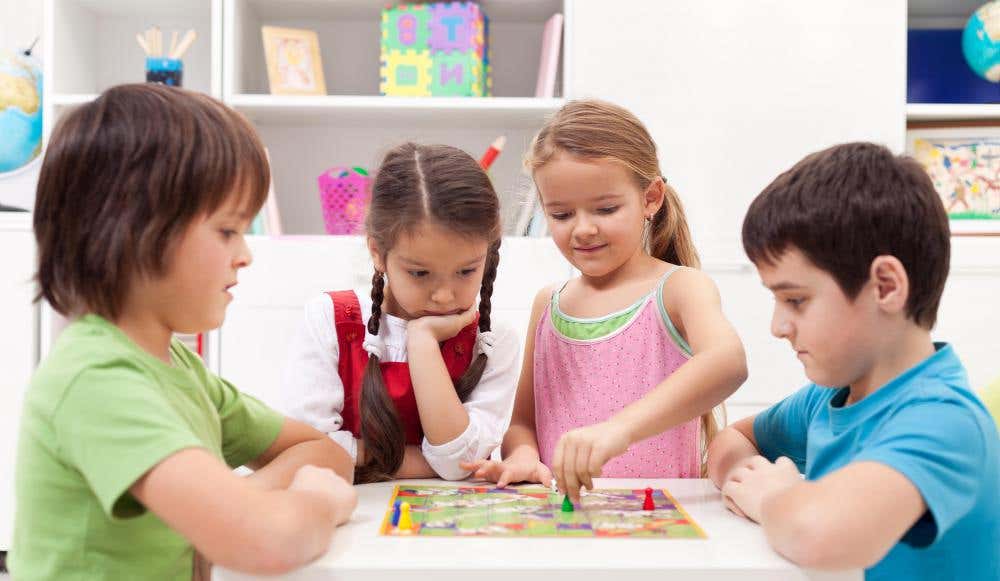Board games can boost math ability in young children, study finds
Board games that focus on numerical mechanics, like Monopoly, and Chutes and Ladders, significantly improve young children’s math skills

[July 8, 2023: Staff Writer, The Brighter Side of News]
Board games that focus on numerical mechanics, like Monopoly, and Chutes and Ladders, significantly improve young children's math skills. (CREDIT: Creative Commons)
In a world increasingly fascinated by digital learning methods, an old-fashioned form of entertainment emerges with surprising pedagogical prowess – board games. According to a thorough review of research spanning 23 years, board games that focus on numerical mechanics, like Monopoly, Othello, and Chutes and Ladders, significantly improve young children's mathematical skills.
Board games, traditionally lauded for their value in enhancing reading and literacy skills, are now being recognized as invaluable tools in the mathematical development of children aged three to nine years. This landmark study was recently published in the reputable peer-reviewed journal Early Years.
Lead author Dr. Jaime Balladares, of the esteemed Pontificia Universidad Católica de Chile in Santiago, states, “Board games enhance mathematical abilities for young children.” He argues that these tangible, tactile games can be wielded as strategic tools to potentially impact both basic and complex mathematical aptitudes.
The design and mechanics of board games can be cleverly adapted to encompass learning objectives related to mathematical skills and other domains, making them highly versatile and effective teaching aids.
Related Stories:
Board games that necessitate turn-based movements of pieces across the board present a different set of cognitive challenges compared to games that focus on specific skills or gambling. The rules are fixed, thus delineating a player's potential actions. The moves made on the board typically dictate the state of play, introducing a chess-like strategic element. Despite these clear merits, board games are scarcely employed in preschool educational environments.
Dr. Balladares and his team embarked on an ambitious mission to collate and analyze the existing evidence regarding the effect of physical board games on children's learning, particularly their mathematical skills. The team evaluated 19 studies published since the turn of the millennium, involving children aged from three to nine years. Notably, all but one of these studies scrutinized the correlation between board games and mathematical competence.
The subjects of these studies engaged in special board game sessions held approximately twice a week for 20 minutes over a period of one and a half months. These sessions were conducted under the supervision of trained adults, including teachers, therapists, or parents.
In some studies, the child participants were divided into two groups: one playing numerical board games and the other engaged with board games not emphasizing numeracy. Some studies, conversely, had all participants play number-focused board games but allocated different games, like Dominoes.
Basic Number Competencies. (CREDIT: Taylor and Francis)
Each child’s mathematical performance was assessed before and after these specially designed interventions aimed to enhance skills such as counting out loud. The researchers categorized their success measurements into four domains: basic numeric competency, like naming numbers; basic number comprehension, such as understanding that 'nine is greater than three'; deepened number comprehension, which entails accurate addition and subtraction; and an overall interest in mathematics.
In certain instances, parents attended a training session to learn arithmetic that they could subsequently utilize during gameplay with their children. The results are a testament to the efficacy of board games as educational tools.
Following these game sessions, more than half (52%) of the assessed tasks demonstrated significant improvement in the children’s mathematical skills. Additionally, nearly a third (32%) of the cases showed children in the intervention groups outperforming those not participating in the board game sessions.
Basic Number Comprehension. (CREDIT: Taylor and Francis)
Surprisingly, while the previous studies had implemented board games focused on language or literacy, they lacked scientific evaluation, such as comparisons between control and intervention groups or pre- and post-intervention assessments, to substantiate their impact on the children.
Therefore, Dr. Balladares, formerly of University College London, urges the need to design and implement board games along with scientific protocols to gauge their effectiveness. According to him, this is an "urgent task to develop in the next few years."
Deepened Number Comprehension. (CREDIT: Taylor and Francis)
Following this comprehensive review, the team is now poised to investigate the potential effects of board games on other cognitive and developmental skills. Dr. Balladares postulates, “Future studies should be designed to explore the effects that these games could have on other cognitive and developmental skills." He believes an exciting opportunity for the development and assessment of board games should be forthcoming given the complexity of games and the need to design more and superior games for educational purposes.
This study underscores the potential of play-based learning in the arena of early childhood education. It invites educators and researchers to reconsider and reimagine board games as potential conduits of crucial mathematical concepts and skills, and it opens the door to a future where the age-old tradition of board games is intertwined seamlessly with the educational fabric of our society.
For more science and technology stories check out our New Discoveries section at The Brighter Side of News.
Note: Materials provided above by The Brighter Side of News. Content may be edited for style and length.
Like these kind of feel good stories? Get the Brighter Side of News' newsletter.
Joseph Shavit
Head Science News Writer | Communicating Innovation & Discovery
Based in Los Angeles, Joseph Shavit is an accomplished science journalist, head science news writer and co-founder at The Brighter Side of News, where he translates cutting-edge discoveries into compelling stories for a broad audience. With a strong background spanning science, business, product management, media leadership, and entrepreneurship, Joseph brings a unique perspective to science communication. His expertise allows him to uncover the intersection of technological advancements and market potential, shedding light on how groundbreaking research evolves into transformative products and industries.



